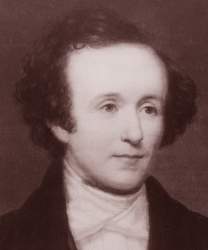Record Data
Transcription
Slavery
No. II
Messers. Editors,--I have already remarked that the public mind in our Northern States has recently been roused to new and vigorous opposition to slavery. The politicians are taking hold of this feeling, not so much, I suppose, because they care greatly about the moral aspects of the question (although some of them do, thank God,) but because it promises to afford a good political handle for some years to come. How far this is due to the Christian Church need not how be discussed; the danger is, at present, that the Church will fall behind the state. Our own branch of the Church is, perhaps, the only one that formally embodies the anti-slavery principle in its fundamental law; theoretically, at least, she is, and has been, from the beginning, in both the Northern and Southern states, an anti-slavery Church.
But for many years our law remained . . . inoperative, and our declaration against slavery to . . . . . . .: we asked the question, “What shall be done to extirpate the great evil of slavery?” and answered practically, “Nothing.” Some will have it that this was just as it ought to be, and just as it should be hereafter; and others even go so far as to say that the Church has no right to interfere with slavery at all, either among its ministers or members. On the other side there are . . . (and your correspondents among the member) who think that the Church has always been right in her protest against slavery, and that if she has erred at all, it has only been in not making that protest more earnest and practical. It may be thought by some, that this opinion needs vindication; and even to those who fully hold it, a brief exposition of the grounds (or a part of them) on which it rests may not be unacceptable.
To avoid all misconception, the proposition which I offer may be thus expressed: It is the duty of the Christian Church in the United States to direct its influence, as a Church, for the extirpation of American slavery. It will be one thing to establish this proposition, and another, and perhaps more difficult, to specify the precise modes in which Church influence should be brought to bear. Of that, however, in its time.
All who profess to be Christians admit that Christ “was manifested to destroy the works of the devil,” and that he instituted the Church as his great agency, to labor through the course of ages to accomplish the object of his manifestation. If it can be shown, then, that slavery in this country is a great moral evil, one of the “works of the devil,” and the circumstances of the age demand and justify the action of the Church in regard to it, one point may be regarded as established. But as much stress is laid by the supporters of slavery, and even by some in the northern states who are unwilling to be called pro-slavery men, upon the absence of any special prohibition of slavery uttered by Christ himself, it may be well to clear the way by a brief allusion to that fact and to the grounds of it.
It is admitted that Christ enacted no special law against slavery. It is admitted, too, that slavery existed at the time of his abode upon earth, and that (although some questions . . . fact on pretty good historical grounds) he may have come into personal contact with it, in Judea. The subject could hardly have escaped his attention, even if he had been merely a man, intent upon founding a special religious community. He had a precedent, too, at his very elbow, for an anti-slavery enactment in such a community. The Essence, a pure and strict sect of the Jews, who aimed, with better purpose it appears than the rest, after holiness of heart and life, had . . . on the subject most effectually. No slaveholder could be a member of their community.
Why did Christ enact such a law? Can we suppose that the Savior saw less clearly than the sect, that all men alike bear the image of God, and that none can have the right by holding their fellows as property to degrade that image into a brute or a chattel? By no means. The Spirit of . . . kingdom was intended to . . . slavery, as well as other forces of evil, and that, too, in a more effectual way than by any specific statute. . . . was a formula for a small circle of devotees, Christianity was a system for the regeneration of mankind; the one sought to enforce morality by specific laws and positive . . . , acting by . .. from without, the other by a spirit working from within, that would assume its laws as they were called for the course of ages; the one declared at once that no slaveholder should share in its . . . , the other gave no precise command upon the subject, but tended, by the very essence of its principles and life, to create in men’s minds a moral sense of the evil of a . . . so utterly subversive of the interests of . . ., and thus to effect its entire . . . .The former was a fixed and right system, . . . . . . . .. . . . . . . .?
So, when Christ founded the Church, he gave it few or no specific laws, but after bestowing its essential principle of life, left to his human agents, acting, through all ages, under the guidance of his promised Spirit, to adapt its organization and outward laws to the ever-varying necessities of human society.
John McClintock, Jr.
Carlisle, March 1, 1847.


